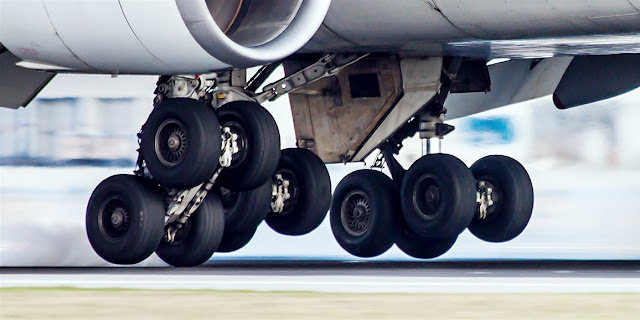Aircraft Tires: The Foundation of Safe and Reliable Flight
 |
| Aircraft Tire |
In the vast world of aviation, where complex systems and advanced technology dominate the spotlight, one component often goes unnoticed: the aircraft tire. These robust wheels are the unsung heroes that bear the weight of the aircraft, ensuring safe take-offs, landings, and smooth operations throughout the flight.
Let's delve into the world of aircraft tires and uncover the crucial role they play in aviation safety.
The increasing number of air passengers is the major driving factor for the growth of the Aircraft Tire Market
Design and Construction: Aircraft tires are not ordinary car tires; they are engineered to withstand immense pressure, extreme temperatures, and high speeds. Constructed with advanced materials such as synthetic compounds and high-strength fibers, these tires offer durability, heat resistance, and weight reduction, contributing to enhanced fuel efficiency and increased payload capacity. The tread patterns on aircraft tires are carefully designed to provide maximum grip on various surfaces and weather conditions, enabling optimal traction during take-offs, landings, and emergency braking.
Safety and Performance: The importance of aircraft tires cannot be overstated when it comes to ensuring safety in aviation. They absorb the impact of landings, distributing the weight of the aircraft evenly to prevent structural damage to both the aircraft and the runway. The unique tread patterns and specialized rubber compounds enable effective braking and skid resistance, even on wet or icy runways, reducing the risk of accidents.
Maintenance and Inspection: Regular maintenance and inspection of aircraft tires are vital for safe and reliable flight operations. Tire pressure, tread wear, sidewall condition, and signs of damage are meticulously checked and monitored.
Proper tire inflation is crucial, as underinflated or overinflated tires can affect the aircraft's handling, braking, and fuel efficiency. Tire rotations are performed to distribute wear evenly across all landing gears, prolonging tire life and maintaining consistent performance. Furthermore, proper storage conditions must be maintained to prevent the degradation of the rubber due to extreme temperatures or exposure to harmful chemicals.
Conclusion: Aircraft tires are the foundation of safe and reliable flight. They withstand tremendous forces, provide crucial traction, and contribute to the overall performance and efficiency of the aircraft. Through regular maintenance, inspections, and adherence to recommended guidelines, airlines and operators can ensure the longevity and optimal performance of their aircraft tires, minimizing the risk of tire-related incidents.
Global Aircraft Refurbishing Market report is segmented into Aircraft type, Refurbishing type, Fitting Type
The tire industry continues to evolve, exploring sustainable materials, recycling practices, and efficiency improvements to support the aviation industry's goal of reducing environmental impact. Next time you board a plane, take a moment to appreciate the vital role that aircraft tires play in keeping you safe in the sky.


Comments
Post a Comment